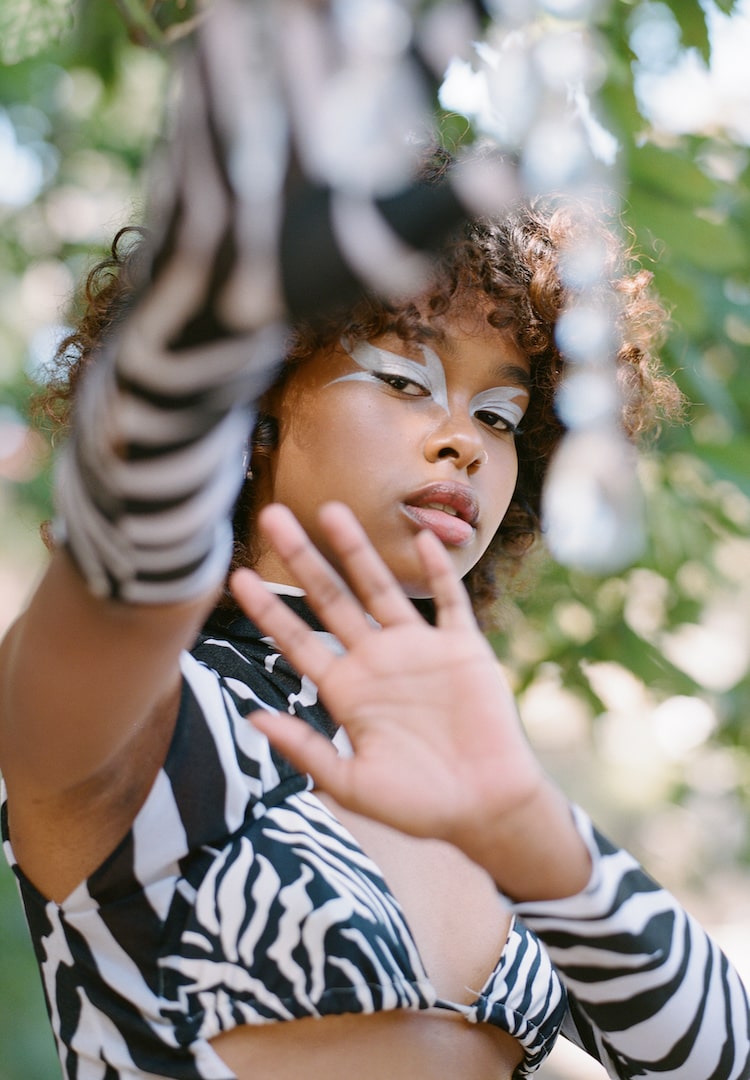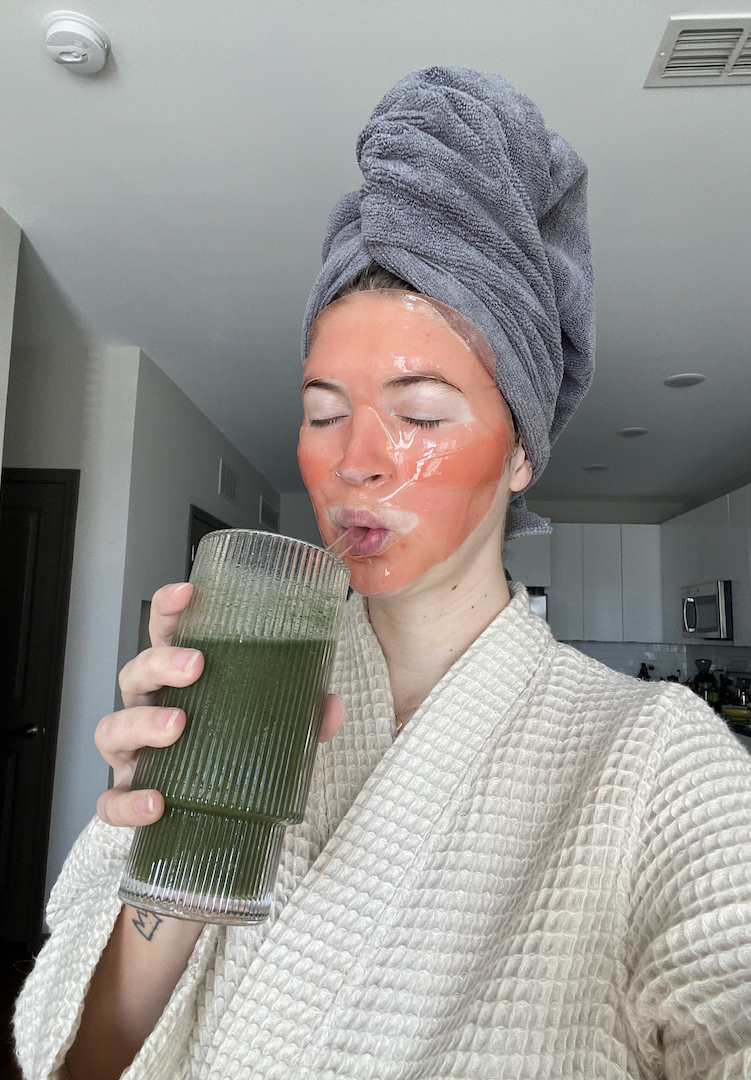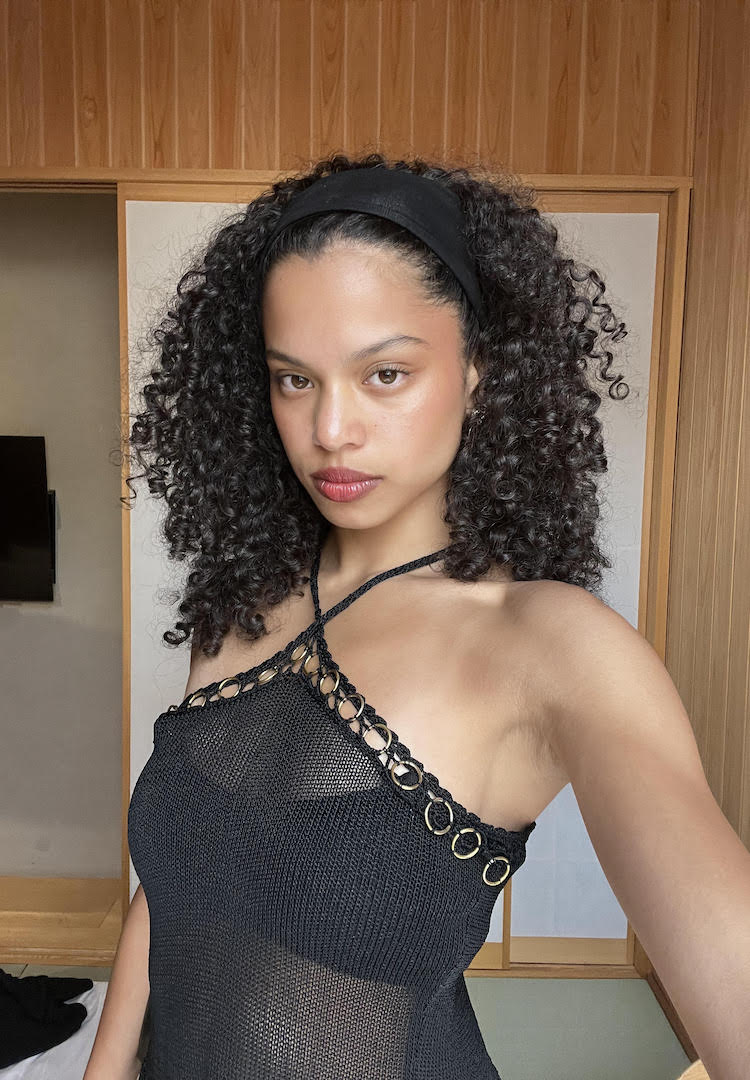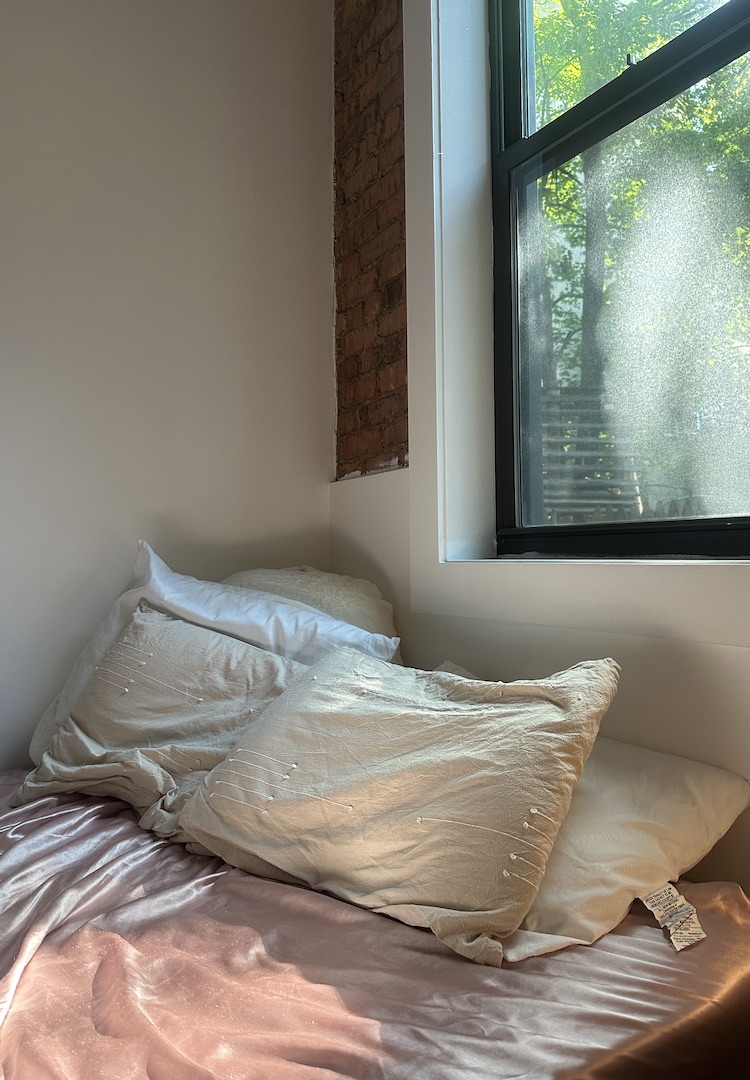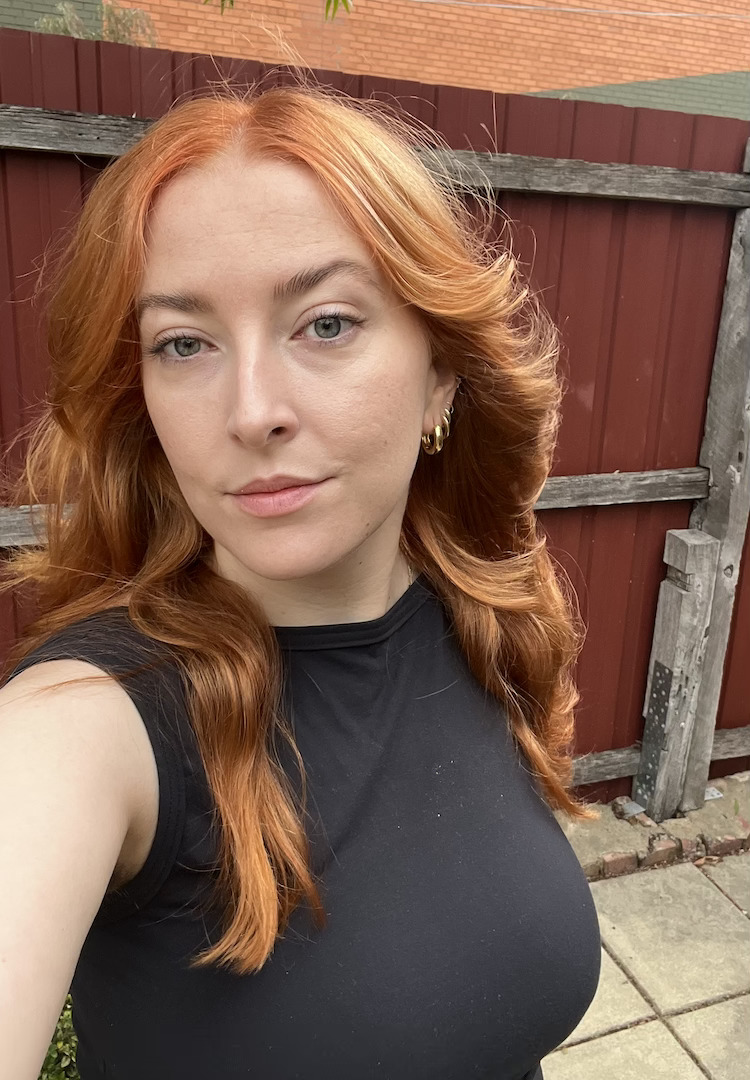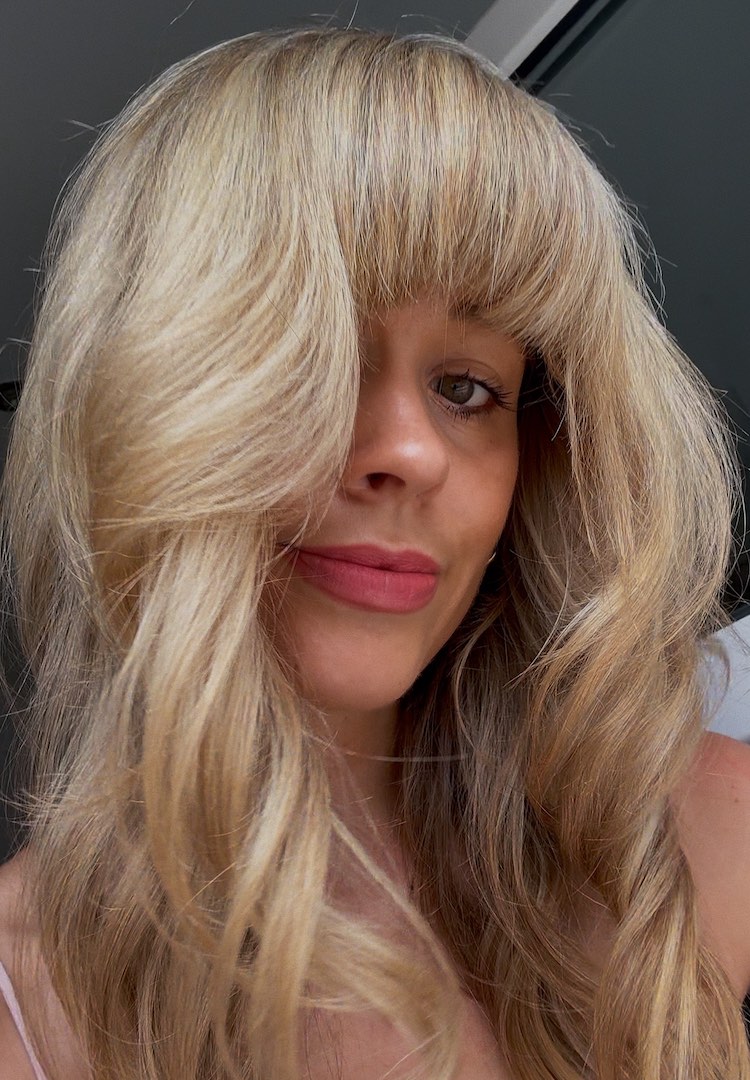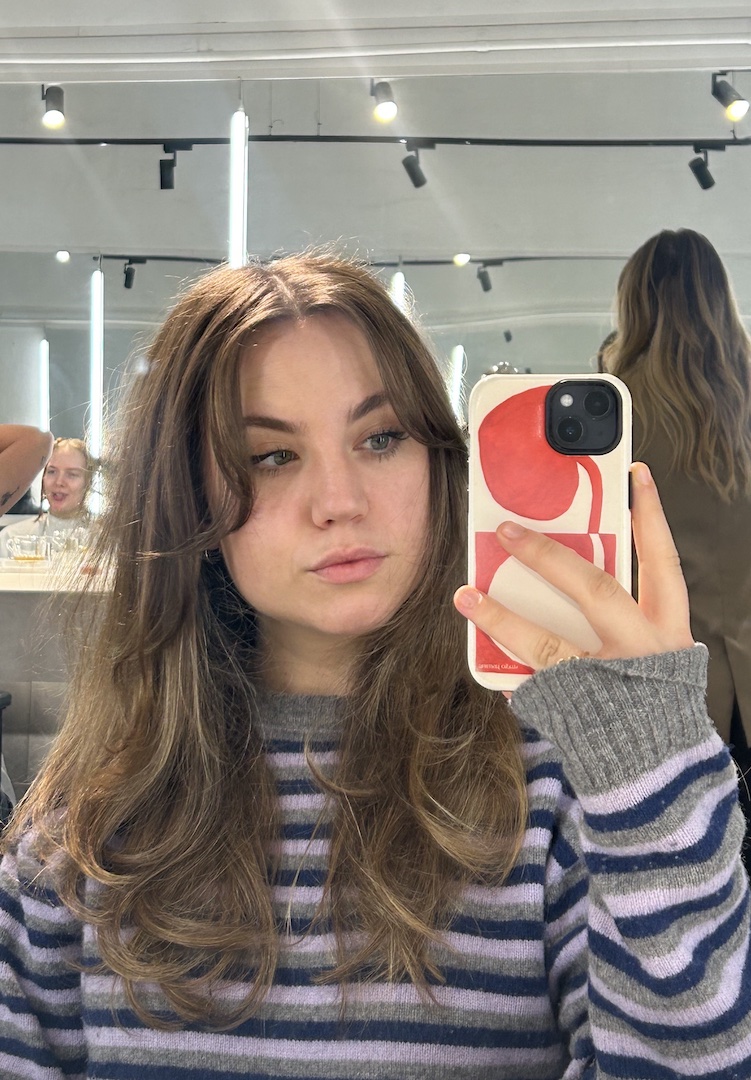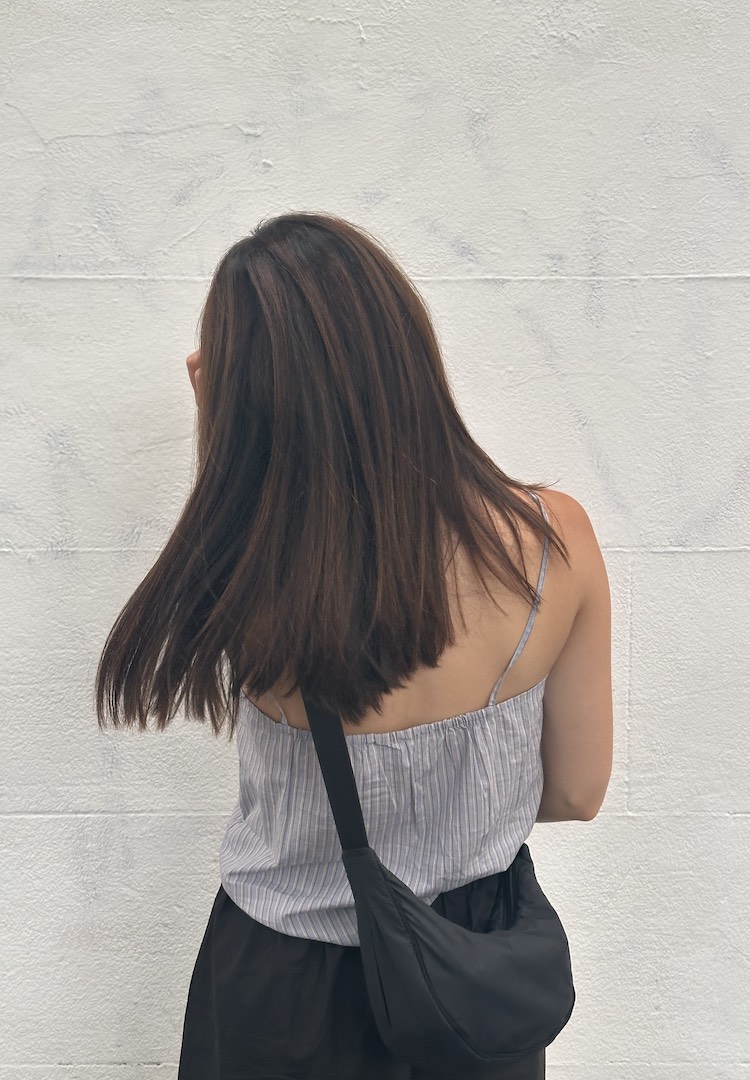Does curly hair need curl-specific products? Three experts weigh in
Photography by Paigge Wharton
The long and short of it.
Anyone who’s had a bad hair day (or a good hair day, for that matter) will know how fickle our tresses can be. Despite having the exact same strands growing out of the exact same head, from one day to the next, our hair can look entirely different. This is particularly true when it comes to curls.
A variety of factors come into play here. Styling, sweat, pillowcases, the number of days since your last wash, how you dried your hair and even the climate will all impact how your curls look on any given day. But most influential of all might be the products you use.
We like nosy people. Don’t be shy, head to our Beauty section for more.
Wherever you sit on the curl spectrum (from loose tresses to tight, coily strands), curly hair requires a markedly different approach to other hair types. While dense, nourishing treatments might bring life to fine hair, they can weigh your curls down and make them look limp. So is it time to invest in curl-specific products? Here’s what three Australians in the haircare industry have to say.
Why do curly hair types need curl-specific products?
“Curly hair has unique characteristics that differ from straight or wavy hair,” says Founder of People Haircare, Katherine Ruiz. “Curly hair tends to have a more uneven distribution of natural oils due to its spiralled shape, making it difficult for these oils to travel down the hair. Additionally, the cuticle layers of curly hair are often raised, which can lead to moisture loss and frizz,” she says, noting curly hair is more prone to dryness, frizz and tangling.
After launching her brand People in 2022 with the tagline ‘Haircare for Everyone’, Katherine noticed how little supermarket haircare catered specifically to those with curls. In response (and as a curly-haired person herself), she expanded People’s offering to include curl care earlier this year. The brand’s curl range is now available at 800 points nationally.
Founder of Delilah Hair Studio, Adrian Panayiotis, has also worked on his own line of curl care products. He sells them through the Delilah salon, which specialises in servicing curly and afro hair with an emphasis on natural texture. “It’s not that curly hair needs curl-specific products, it’s that curly hair needs certain ingredients,” he explains.
“If you give someone a shampoo that’s hydrating and they have fine hair, it will be too limp and heavy… or if you give someone a deep cleansing shampoo and their hair is coarse, it will make it feel super dry.” Both have the result of minimising a person’s natural curl.
What should I be looking for in curl care products?
“Curly hair is very different to straight hair, structurally and visually,” says Founder of Alchemy Salon, Becc Snow. Through Alchemy, she offers a suite of curl-specific services, from curly haircuts to a specialist ‘wash and diffuse dry’ each using products targeted to the client’s own hair type.
“For curly hair, hydration is key,” she says, adding it’s important to work with a professional. “Not only does the shampoo or conditioner have to have the right hydration ingredients for your curl type, it also needs to be able to deliver those ingredients to the hair shaft efficiently so the hair can actually benefit from them.”
When it comes to penetrating the hair shaft, Adrian points to vegetable proteins as an important part of any curl care formulation. “Everyone has the misconception that protein makes your hair stiff and crunchy… A little-known fact about protein is that when it’s present in a product, it helps to retain moisture in the hair (which is great for enhancing curl) and push it deep into the hair shaft.”
Echoing the importance of hydration for curls, Katherine suggests looking for pH-balanced products, noting these will help maintain the natural pH of your scalp and minimise any irritation or dryness.
She also recommends giving the ingredients a read, with a special eye out for moisturising and nourishing products such as shea butter, coconut oil, olive oil, glycerin and aloe vera. “Look for products labelled as moisturising or hydrating,” she adds. “As a general rule humectants [like glycerin] help retain moisture, so they are great for curly hair.”
All agree it’s best to avoid products containing sulfates and parabens, as these can strip away moisture and weigh down curls, and all say washes should be limited to once per week, with your hair’s natural oils always best for your hair and curl type.
Should different curl types look for different curl care products?
All three experts agree that different hair types will respond best to different products, noting it’s not necessarily about your curl type.
“I find it is more about the hair density and strand texture, than the tightness of the curl,” says Becc. “The coarser the hair strand, the more moisture it will need [but] both curly and coily hair strands can be fine, medium or coarse, so it really comes down to working your individual hair type, density and curl pattern.”
Adrian advises those with coarse, curly hair to focus on products with a high butter content, like cacao or shea. For those with fine, curly hair, he recommends oil-free styling and products with a high protein content. “This will increase volume and allow the curl to be light and voluminous. Added oils will weigh fine curly hair down,” he says.
Katherine notes that experimentation is key to finding the most suitable products for your unique curl pattern, given there are so many variables. She points to climate and styling habits as factors often overlooked when choosing products, and recommends experimenting with leave-in conditioners, curl creams and hair treatments.
You should know pretty quickly whether your products are working for your hair type, as the wrong ones will make your hair look greasy, limp, frizzy or dry.
“A great product for curly hair will correct any issues in the hair quality like dryness and lack of elasticity,” says Adrian. “Balanced hair will curl brilliantly whilst a cosmetic fix with heavy oils will make it look greasy.”
For more on working with your natural hair, head here.


